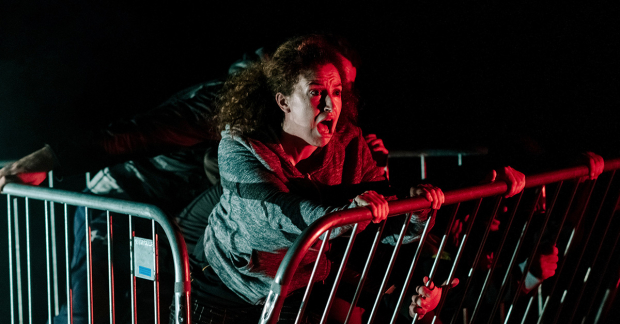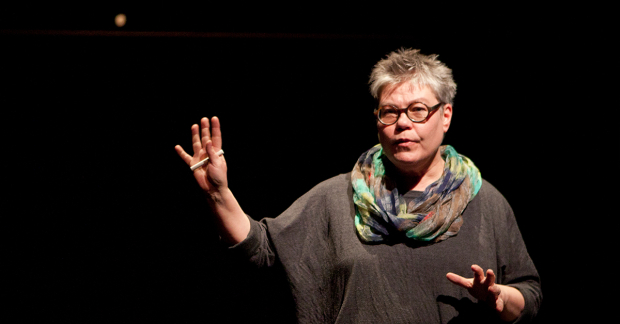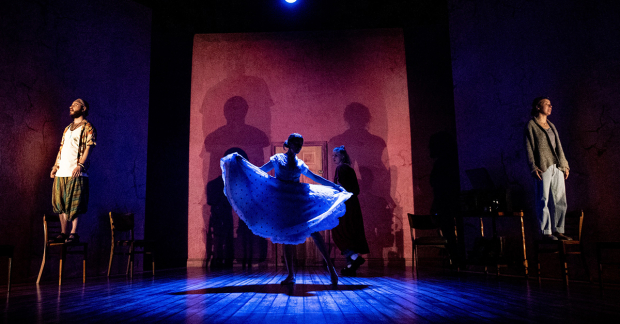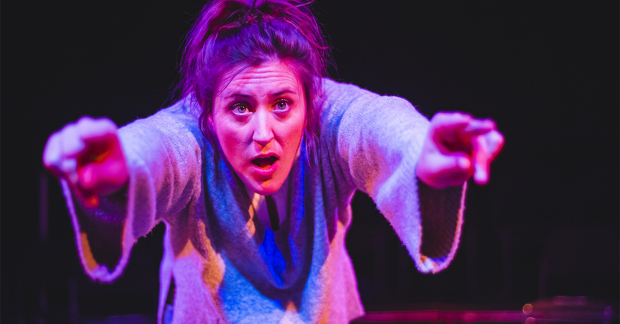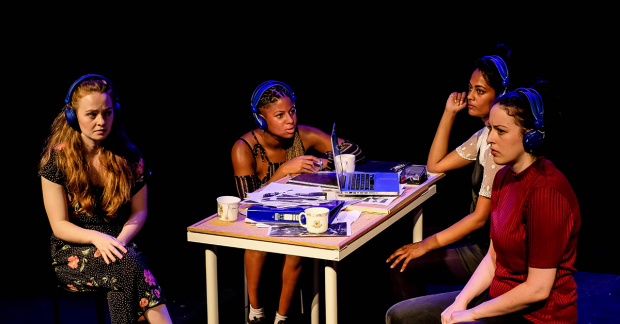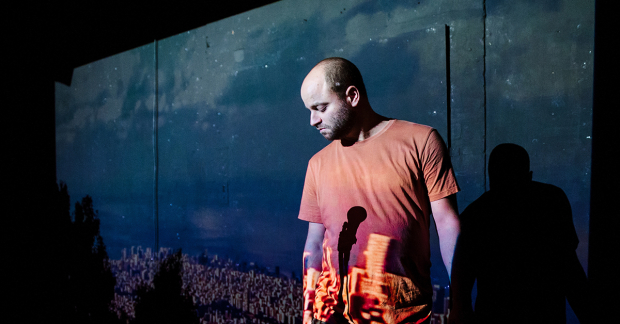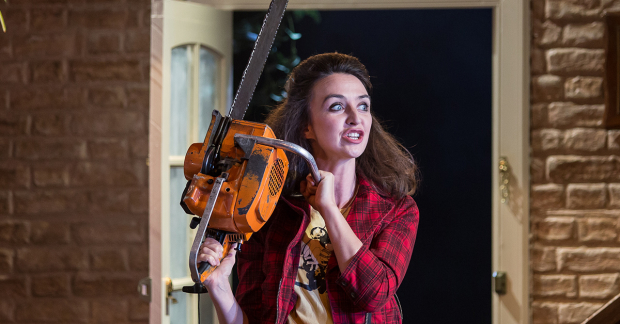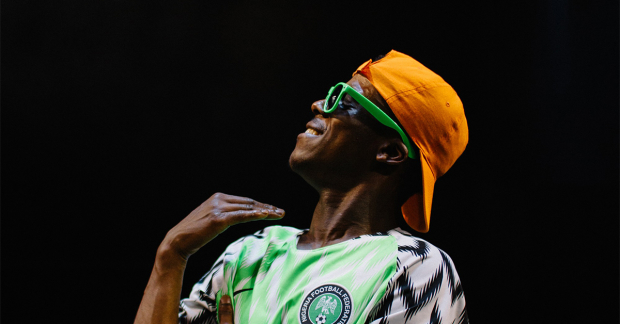Review: A Table Tennis Play (Underbelly Cowgate, Edinburgh)
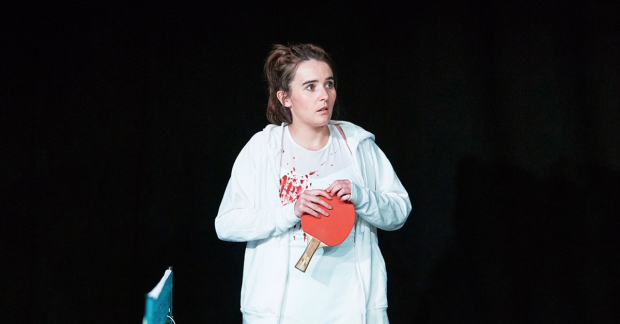
© The Other Richard
A table for the titular tennis sits in the middle of Ed Madden's production of Sam Steiner's new three-hander, which premieres at the Edinburgh Fringe and sees the playwright working once more with budding company Walrus – the team previously responsible for the hit Lemons, Lemons, Lemons, Lemons, Lemons. There's something hypnotic about the game – the robotically casual back and forth, the click and clatter of plastic on wood – some elaborate, flawed and human ticking clock.
The piece, initially hazy on specifics but slowly pulling them into focus, has time at its centre. An early-30s couple, Cath and Cal, return to Cath's old family home to sift through a pile of memorabilia found in a hidden air-raid shelter. Time has stopped in this sealed off underground space but for Cath, who seemingly has a superhuman ability to know the exact age of things (and people), the world has carried on – her mother is gone, her relationship is floundering. All that's left is to trawl through a mix of personal treasure and tat (all presented as pearl-white ping-pong balls) in the shelter, dredge up the past and compartmentalise it in colour-coded boxes.
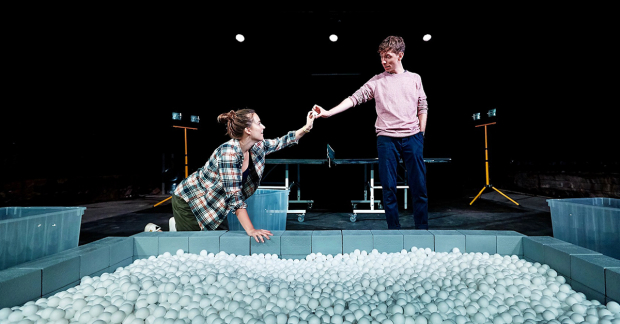
© The Other Richard
That is until 18 year-old tennis pro Mia (Beth Holmes, as brilliant as she was in Lemons) – nervy, superstitious and constantly sporting an uncertain and crooked half-smile – starts to meddle, loitering around the pair, offering brownies, inadvertently teasing out the troubled couple's gripes. Mia's entrance upsets Cath and Cal's rhythm, tripping their routine and stymying their tried-and-tested to-and-fro.
If may all sound a bit sedate but it is anything but – A Table Tennis Play is less concept-driven than Steiner's previous work (no one is waking up as Kanye West in this show) but sees him at his finest: whip-smart dialogue is whacked back and forth as themes, desires and thoughts bounce around Underbelly's Big Belly. It's the scenes where Mia and Cath (a solid Rosa Robson) pair up that prove the most riveting, their relationship simultaneously parental and sisterly – sparking a tenderness that both begin to tentatively embrace. At the same time, there are many familiar elements to Cath and Cal's relationship (Euan Kitson also on fine form following Lemons) – the shorthand sentences, the pithy games used to lighten the mood, the lies they systematically tell one another.
Lizzy Leech's paddling pool of small balls acts as a partition between actors and audience, and Madden's production remains largely abstract – a perfect counter for characters that are so vividly drawn. The trio enter and exit the shelter to the sound of a low boom (Richard Bell's subtle sound design) while a low strip of LED lights flickers courtesy of Charlotte Burton.
A final monologue, more of an epilogue, almost squanders what could have been a beautifully cathartic Springstein-scored conclusion, but it's a passage carried off with aplomb by Holmes. Steiner's return to the Fringe solidifies his status as a writer with the keenest ear for dialogue, finding magic among a sea of memories. An absolute ace.



